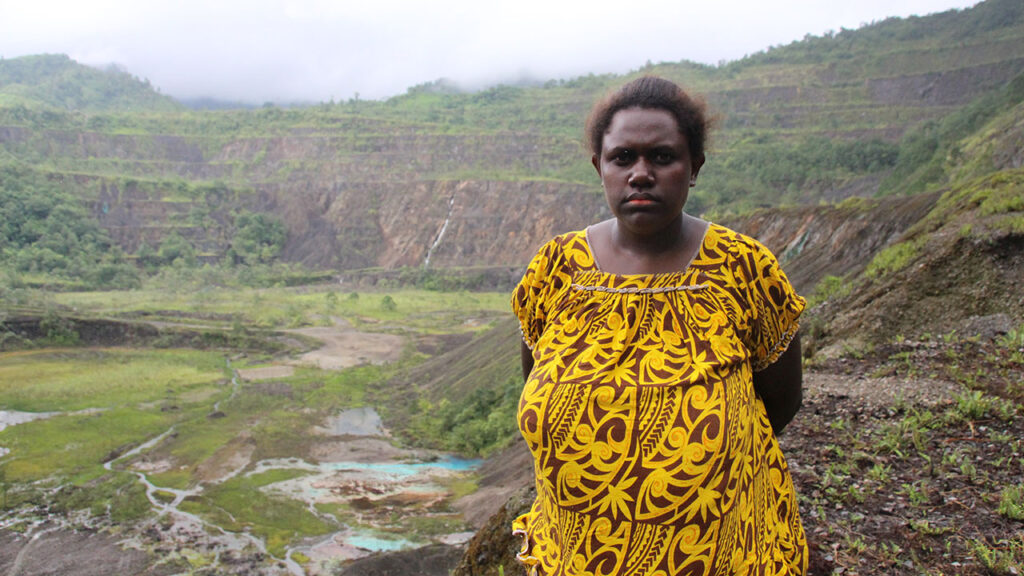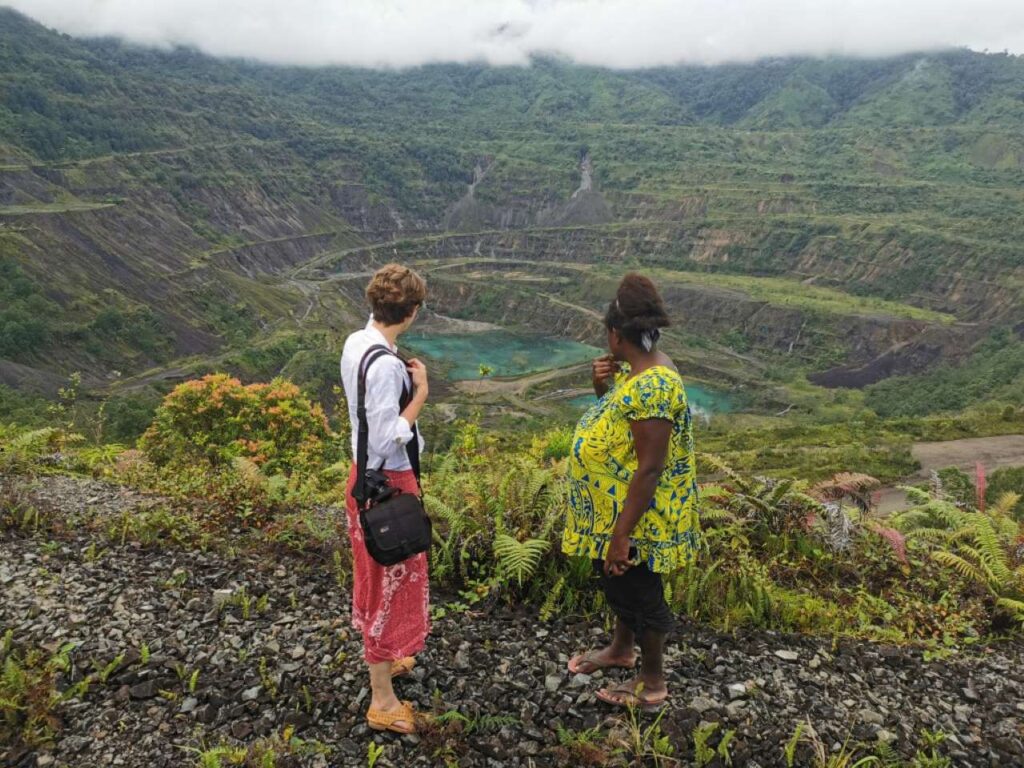Recent flooding shows ongoing volatility of impacts from Rio’s former Panguna mine
Leaders in communities impacted by Rio Tinto’s former Panguna mine are growing increasingly concerned about the dangerous and volatile situation they are living in. In particular, recent heavy rainfall has seen rivers choked with mine tailings waste flood, swamping several communities.
Residents reported that flooding in recent months had inundated peoples’ homes, water supplies and food crops, causing food and water shortages and damage to roads and the environment. Up to ten villages are reported to have been affected.
Risks of flooding were warned of in an independent report by Tetra Tech Coffey published last year. This report was prepared as a baseline to inform an independent human rights and environmental impact assessment that launched in December 2022 and which Rio Tinto committed to fund in response to a human rights complaint by 156 local residents. Phase 1 of the assessment is due to report in mid-2024.
Community leaders are calling for immediate funding from Rio Tinto for tangible action to address urgent health and safety issues in their communities, as well as a commitment from the company now that it will fund long-term solutions after each phase of the impact assessment.
To date, Rio Tinto has agreed to fund the human rights and environmental impact assessment only.
Chairperson of the Lower Tailings Landowners Association, Bernardine Kiraa, said:
“Our communities are drowning in mine tailings waste. The recent flooding damaged peoples’ houses, food crops and water sources. Women have been having trouble finding clean water to wash their babies. We worry about the spread of mosquitoes and disease following the flooding.”
“We support the independent investigation of the mine’s impacts, but our communities also need action now. This is not the first time our lands have been flooded and it will not be the last because the river is full of mine waste.”
Traditional landowner and lead complainant*, Theonila Roka-Matbob, said:
“We have welcomed Rio Tinto’s commitment to assessing the impacts of the Panguna mine. We know the process will be a long one. But we have been dealing with the disaster caused by the mine for decades.
“We are always worrying that the food we eat, the water we drink and the air we breathe is not safe. We worry about levees collapsing and mine waste flooding our lands and communities.
“We need tangible action now to address urgent health and safety issues. And we need to know what Rio’s intentions are after the impact assessment – that they will stick with us and fund the long-term solutions we need.”
Adrianne Walters, Legal Director at the Human Rights Law Centre:
“Water is the lifeblood of all communities – for drinking, bathing, washing and growing food. But for many communities in the path of the mine’s waste, clean water is in desperately short supply. The recent flooding has made the situation worse for many.
Communities are being asked to be patient while the impact assessment progresses over a number of years. But they also need action now and a public commitment from Rio Tinto that it will actually remedy the devastating impacts of the mine.
Rio Tinto’s commitment to assessing the impacts of its former mine is an important first step. The company now needs to publicly reassure communities that it is firmly committed to funding the long-term solutions that will allow them to live safely on their land.
*Theonila Roka Matbob is a lead complainant in a human rights complaint brought against Rio Tinto in 2020 for the ongoing impacts of the Panguna mine. The complaint was made to the Australian National Contact Point for Responsible Business Conduct.
Background
Life-sustaining forests and rivers were destroyed by the release of over a billion tonnes of tailings waste directly from the Panguna mine into the Jaba and Kawerong rivers between 1972 and 1989.
In 2021, Rio Tinto publicly committed to fund an independent environmental and human rights impact assessment of the mine in response to the complaint. The assessment is being funded via an independent company, the Panguna Legacy Assessment Company.
The assessment began in 2022, overseen by a Committee of local chiefs, landowners, government representatives and representatives of Rio Tinto, Bougainville Copper Ltd and the Human Rights Law Centre. The Committee appointed independent global consulting firm, Tetra Tech Coffey, to undertake Phase 1 of the assessment, focused on acute risks and impacts to people. They are due to report by mid-2024.
Read the full story by Tim Swanston at ABC News
Media contact:
Thomas Feng
Human Rights Law Centre
Media and Communications Manager
0431 285 275
thomas.feng@hrlc.org.au

Bougainville community leaders demand seat at the table in remediation discussions with Rio Tinto
Bougainville community leaders are calling for a seat at the table in discussions about the potential remediation of the environmental devastation caused by Rio Tinto’s former Panguna mine, scheduled to begin in Port Moresby today.
Read more
Major environmental damage and human rights impacts to Bougainville communities confirmed by independent investigation into Rio Tinto’s former Panguna mine
Communities living with the ongoing devastation from Rio Tinto’s former Panguna mine in Bougainville are calling on the company to commit to funding remediation and addressing public safety risks, after a major independent investigation funded by the company confirmed life-threatening, ongoing social, environmental and human rights impacts from the mine.
Read more
Reforms to modern slavery law welcome but need to go further to protect workers’ rights
Civil society groups and unions have welcomed proposed changes to strengthen Australia’s modern slavery law, including through the introduction of penalties, but are calling on the Albanese Government to also introduce a legal requirement for companies to take action to prevent modern slavery.
Read more


